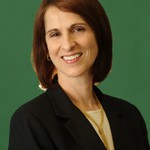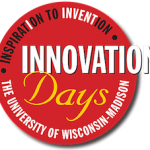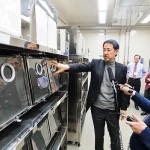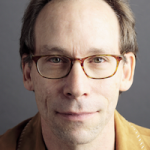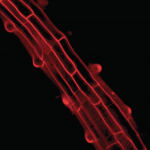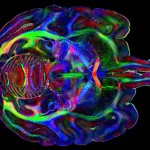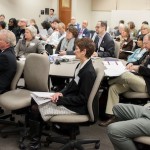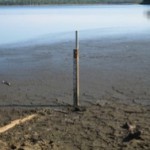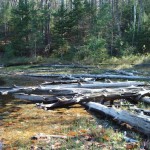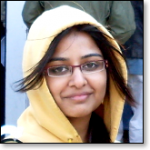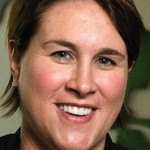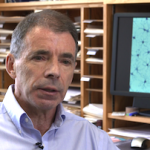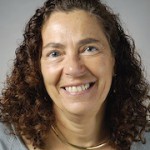Category Science & Technology
Experienced executive LaBelle to lead Office of Corporate Relations
Susan LaBelle, a veteran private sector executive and economic development leader who has taught in the UW–Madison master's in biotechnology program, has been selected to head the university's Office of Corporate Relations (OCR).
For athletes, Beyond the Game opens doors to science
Badger football player Melvin Gordon knows something about testing the laws of physics. On a football Saturday, Gordon, a star running back, can be seen squeezing through an impossibly small hole for a first down, or launching himself into the end zone with a gravity-defying leap.
Innovation Days marks 20 years of undergrad entrepreneurship Feb. 13-14
University of Wisconsin–Madison undergraduates are greeting the 20th anniversary of the Innovation Days competition with inventions that range from healthcare to agriculture to exercise for amputees.
Prolific chemistry student wins Churchill Scholarship
As a child, Joshua Shutter's introduction to chemistry came through library books, learning to make rock candy and bottle rockets.
UW-Madison flu expert recognized for research excellence
Yoshihiro Kawaoka, a professor of virology at the University of Wisconsin–Madison School of Veterinary Medicine known for his groundbreaking work on influenza, has received the 2014 Excellence in Research Award from the Association of American Veterinary Medical Colleges (AAVMC).
Distinguished Lecture Series announces spring lineup
The first speaker of the spring 2014 Wisconsin Union Directorate Distinguished Lecture Series is Lawrence Krauss. This award-wining physicist will speak on Wednesday, February 12, in Varsity Hall, Union South, at 7:30 p.m.
Wisconsin researchers identify key pathway for plant cell growth
For plants, the only way to grow is for cells to expand. Unlike animals, cell division in plants happens only within a tiny region of the root and stem apex, making cell expansion the critical path to increased stature.
Contest seeks amazing science images
To highlight the visual and scientific value of scientific imagery, the fourth annual Cool Science Image Contest is soliciting the best images from students and faculty and staff scientists on the University of Wisconsin–Madison campus.
Education, surgery try “speed dating” for research
Dr. Craig Kent, chairman of surgery, said he hopes that it is at least as successful as a 2010 “speed dating” event with engineering faculty. That one resulted in several research partnerships between surgeons and engineers.
Scientists ID 10-year water-level cycle in Great Lakes basin; say current lows buck trend
For at least the last 70 years, lakes and aquifers in northern Wisconsin have followed the same pattern - after higher than average peaks, water levels spend about 10 years on a downward trend before abruptly spiking up again, only to repeat the decade-long fall back to low-water conditions.
Fish forced into the ‘foraging arena’ when lakes lose their trees
In attempts to predict what climate change will mean for life in lakes, scientists have mainly focused on two things: the temperature of the water and the amount of oxygen dissolved in it. But a new study from University of Wisconsin researchers is speaking for the trees - specifically, the dead ones that have toppled into a lake's near shore waters.
Grad student’s proteins cut a rug, win ‘Dance Your Ph.D.’ competition
Graduate school research can get long and tricky and complex beyond the easy understanding even of your fellow grad students. Unless it has a beat, that is, and you can dance to it.
Sleep is the price the brain pays for learning
Two leading sleep scientists from the University of Wisconsin School of Medicine and Public Health say that their synaptic homeostasis hypothesis of sleep or “SHY” challenges the theory that sleep strengthens brain connections.
Skop elected to society’s board
Ahna Skop, associate professor of genetics at the University of Wisconsin–Madison, has been elected to the board of the Society for Advancement of Hispanics/Chicanos and Native Americans in Science (SACNAS).
Study identifies gene mutation as cause of canine tremor disorder
Weimaraners – sleek, athletic dogs originally bred for hunting - are known for their striking, silver-tinged coats. Unfortunately, they also are known for a rare tremor disorder reported widely throughout North America and Europe.
UW researchers link protein with breast cancer’s spread to the brain
A cancer-research team at the University of Wisconsin–Madison has identified a protein that may be a major culprit when breast cancer metastasizes to the brain.
CALS researchers developing novel treatment for septic shock
By the time doctors diagnose septic shock, patients often are on a knife’s edge. At that point, for every hour that treatment is delayed, a person’s risk of death rises an alarming six percent.
Even or odd: no easy feat for the mind
Even scientists are fond of thinking of the human brain as a computer, following sets of rules to communicate, make decisions and find a meal.
Documentary connects multiple sclerosis, Vikings and Nordic skiing
Multiple sclerosis (MS), a neurological disease that affects more than 400,000 Americans, attacks the nervous system and causes many symptoms, including difficulty moving. But many who suffer from the disease defy its effects by maintaining an active lifestyle.
Poverty influences children’s early brain development
Poverty may have direct implications for important, early steps in the development of the brain, saddling children of low-income families with slower rates of growth in two key brain structures, according to researchers from the University of Wisconsin–Madison.

